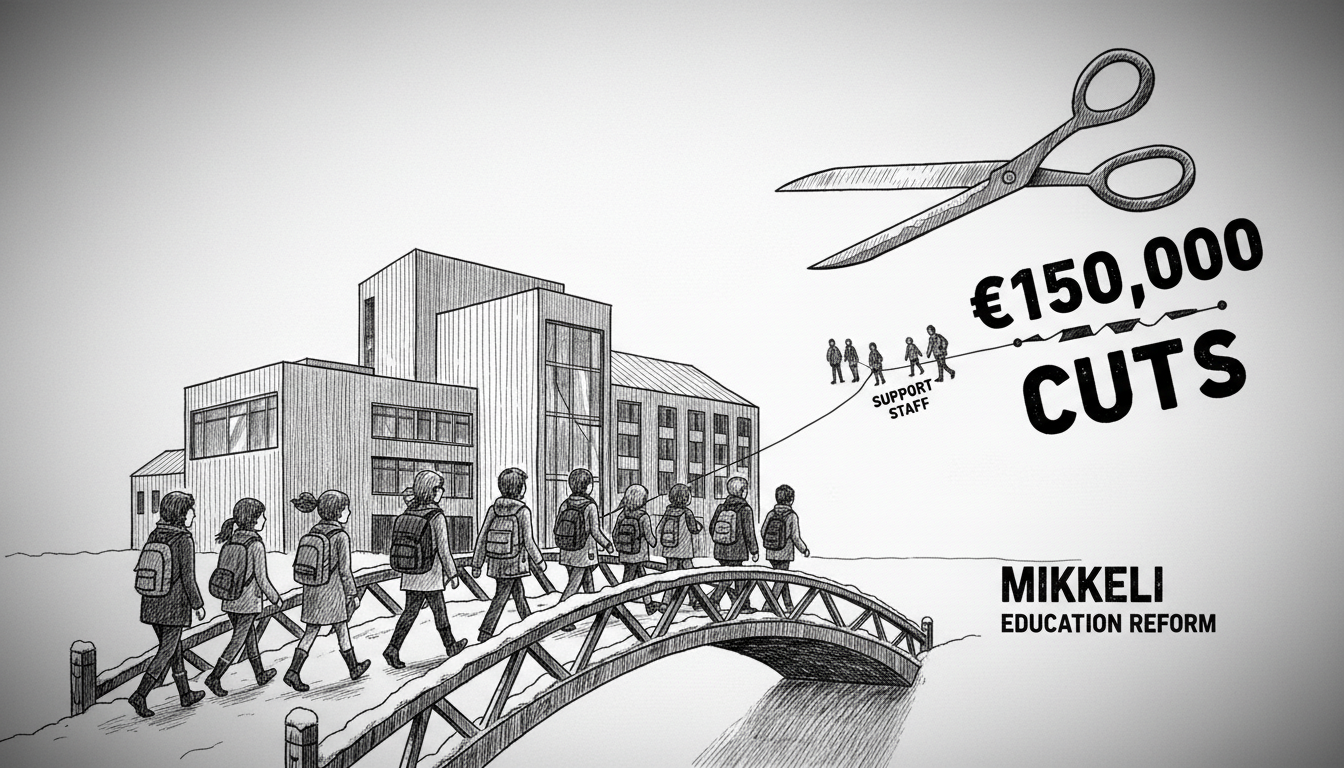The city of Mikkeli in eastern Finland has implemented budget cuts affecting school support staff, reducing educational assistant positions by approximately five full-time equivalents. The move saves the municipality around €150,000 annually as part of broader economic balancing measures approved by the city council.
Education Director Seija Manninen confirmed the reduction targets temporary educational assistants specifically. The city had more educational assistants relative to student numbers compared to peer municipalities including Lappeenranta, Kouvola, Joensuu, Hämeenlinna and Seinäjoki. This disparity influenced the decision to align staffing levels with other Finnish cities.
The number of temporary educational assistants has dropped from 73 in autumn 2022 to 55 currently. Meanwhile, permanent positions have increased from 102 to 121 during the same period. Most educational assistants work part-time regardless of employment status.
One affected educational assistant, identified only as Liisa for employment protection reasons, expressed concern about the cuts. She had worked multiple years in different schools with proper qualifications and enjoyed her diverse, though hectic, role. Liisa noted that in recent years, staff already felt stretched thin across multiple groups. Cutting assistant numbers came as a surprise when she believed more support was needed, especially with increasingly challenging student situations anticipated.
School principals across the region report varying impacts from the reduced staffing. Kalevankangas School principal Janne Syrjäläinen acknowledged the constant balancing act between educational assistant resources and student needs. He emphasized the particular timing concerns him, noting that several years ago Mikkeli implemented special education reforms keeping students in local schools, and national learning support reforms are currently underway. These changes don't reduce the need for assistant support in his view.
Syrjäläinen openly wished officials would reconsider and find savings elsewhere rather than cutting educational assistants. His school employs 38 assistants, more than other schools, because it provides both常规 basic education and serves developmentally disabled and gifted students.
Other principals described specific challenges. Small schools struggle with combined-grade classes, where Rämälä School principal Juha-Matti Neuvonen noted one of three combined classes effectively functions without assistant support. Teaching two different lessons simultaneously in one classroom without another adult presents real difficulties. Tuppurala School principal Katariina Vilén reported steadily decreasing assistant numbers despite growing need, particularly for students requiring support and those with immigrant backgrounds.
Education Director Manninen defended the allocation process, stating resources are distributed based on annual needs assessment and multidisciplinary evaluation. The system aims to direct resources fairly to areas with greatest need. Some schools, like Rantakylä comprehensive school, report sufficient assistant coverage according to principal Hanne Lahtinen.
The cuts occur during Finland's national learning support reform, which shifts emphasis toward group-specific support rather than individual assistants. This means increased teacher collaboration through co-teaching, support instruction, and language support instruction. Sairila School principal Olli Manninen suggested the focus on assistant resources overshadows more important discussions about teaching resources themselves, noting that while student numbers have slightly increased, special education resources have diminished.
These educational assistant reductions reflect broader tensions in Finnish municipalities balancing budgetary constraints against maintaining the country's renowned education system. The situation demonstrates how local economic decisions directly impact classroom dynamics and student support structures.

